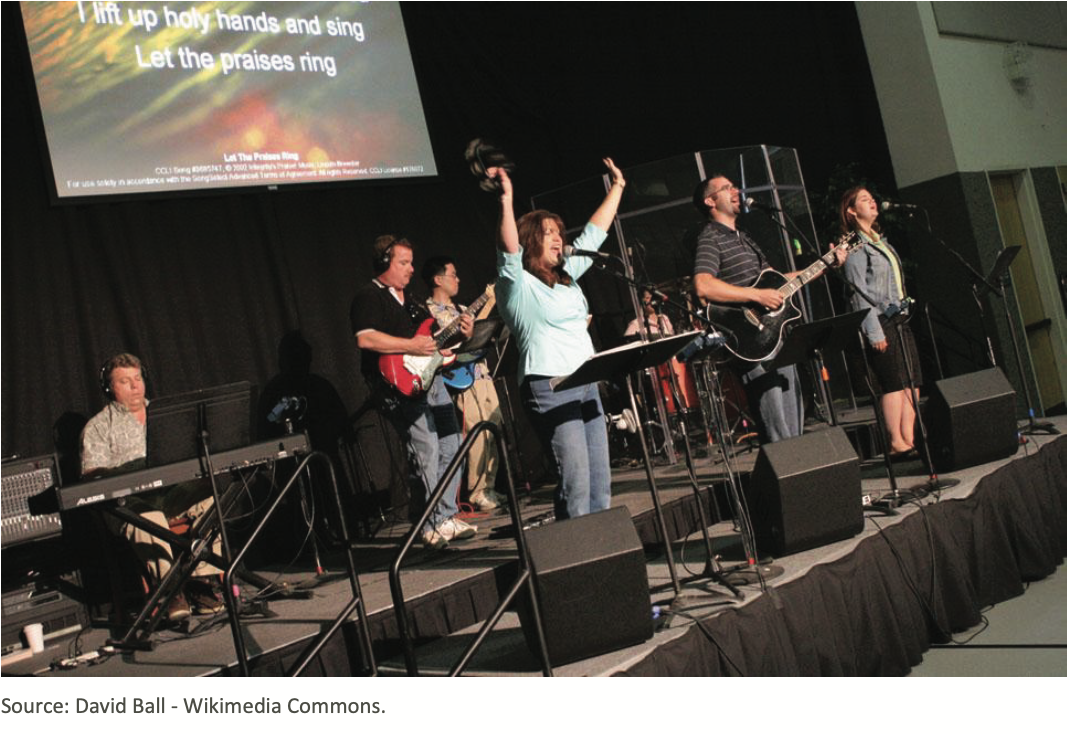
As mixed-use congregations become more common, the longstanding “worship wars” between evangelical congregations favoring traditional services and those using contemporary music and worship are simmering down, writes Thomas Kidd of Baylor University in a blog on the Christian Coalition website (December 13). Kidd reviews a new book by Melanie Ross, who argues that the fading “traditional vs. contemporary” dichotomy of the worship wars—which was never really as clear a distinction as polemicists charged—is now settling into a “mosaic” model of worship styles, varying by congregations. Ross studied a range of evangelical congregations’ worship practices and competing views about worship styles and songs. Nearly all of the evangelical churches she studied tended to be nondenominational, urban/suburban, and were usually connected to the historic evangelical or charismatic movements. Rather than the strict traditional vs. contemporary split, Ross found that recurring tensions over competing goods commonly played out within the same church. “Often large congregations have a worship minister who worries about the ahistorical, commercialized nature of worship music. But the minister knows there are limits about how much one might wisely fight against the tide of popular taste,” Kidd writes.

Ross analyzed Keith and Kristyn Getty’s prominent music ministry, which is a case study in the “evangelical mosaic’s impulse to offer music that seems affective and relevant, while also tapping into the treasures of the historic tradition.,,,The Gettys are helping a new generation of worship leaders to lead churches in songs that have that enduring quality, both musically and theologically. ‘Enduring,’ in this way of thinking, is far preferable to ‘current.’” A recent source of tension has emerged over how much congregational singing is expected, particularly in the megachurches. For example, at the prominent megachurch North Point Church in Atlanta, the ministerial team puts no expectation on worshippers to sing, lest any visiting seekers feel uncomfortable. But worship staff at North Point are unhappy about this development, with one staffer complaining about how many attendees just stand silently during songs, staring blankly at the stage while holding a Starbucks cup. Kidd writes that “The conclusion one reaches in reading this profound analysis…is that ‘worship’ is bigger, more complex, and more important to a Christian’s identity than most evangelicals or scholars of evangelicals knew.”